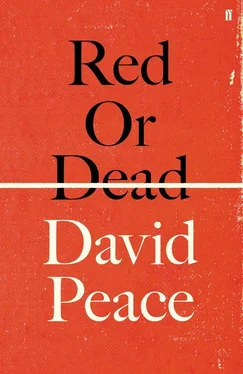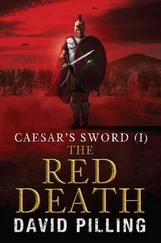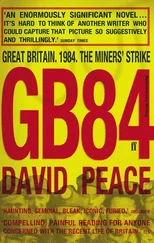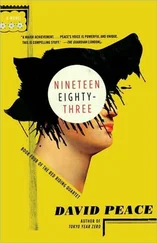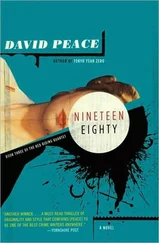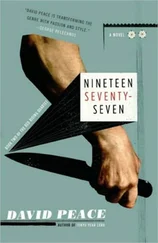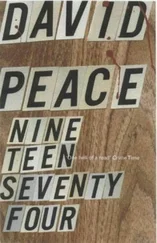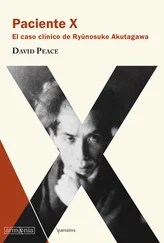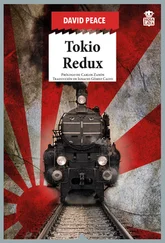On Saturday 21 February, 1970, Liverpool Football Club came to Vicarage Road, Watford, to play Watford Football Club in the Sixth Round of the FA Cup. That afternoon, thirty-four thousand and forty-seven folk came, too. Thirty-four thousand and forty-seven folk to watch Liverpool Football Club of the First Division play Watford Football Club of the Second Division. Watford Football Club of the bottom of the Second Division. And before the whistle, the first whistle. The supporters of Liverpool Football Club inside Vicarage Road sang Ee-aye-addio, we’re going to win the Cup! We’re going to win the Cup! Ee-aye-addio, we’re going to win the Cup! Over and over. The supporters of Liverpool Football Club sang, Ee-aye-addio, we’re going to win the Cup! We’re going to win the Cup! Ee-aye-addio, we’re going to win the Cup! Again and again. The supporters of Liverpool Football Club sang, Ee-aye-addio, we’re going to win the Cup! We’re going to win the Cup. Ee-aye-addio,
we’re going to win the Cup!
But on Saturday 21 February, 1970, the players of Watford Football Club were quicker off the mark. The players of Watford Football Club were harder in the tackle. They were more assured on the ball, they were more certain in possession. More steady in defence and more penetrative in attack. And Lugg of Watford Football Club moved effortlessly up and down the right wing. Time and time again. Lugg of Watford Football Club effortlessly beat Liverpool player after Liverpool player. Time and time again. Yeats not assured, Yeats not certain. And his uncertainty was contagious. From Liverpool player to Liverpool player. Uncertainty spread. From Yeats to Lawrence, Lawrence to Lawler, Lawler to Wall, Wall to Strong, Strong to Hughes, Hughes to Callaghan, Callaghan to Ross, Ross to Evans, Evans to St John and from St John to Graham. Their every touch uncertain, their every pass uncertain. And in the sixty-third minute of the Sixth Round of the FA Cup, again Lugg effortlessly moved up the right wing. And again Lugg effortlessly beat Liverpool player after Liverpool player. And Lugg effortlessly crossed. And Endean effortlessly rose over Lawler. And Endean effortlessly beat Lawler to the cross. And Endean effortlessly headed the ball past Lawrence into the goal. And into the net. The Liverpool goal, the Liverpool net. But for the next thirty minutes of the Sixth Round of the FA Cup, for the last thirty minutes of the Sixth Round of the FA Cup, the supporters of Liverpool Football Club sang and they sang. They roared and they roared. They screamed and they screamed. And for the next thirty minutes of the Sixth Round of the FA Cup, for the last thirty minutes of the Sixth Round of the FA Cup, the bench of Liverpool Football Club shouted and they shouted. They roared and they roared. They screamed and they screamed. But in the ninetieth minute of the Sixth Round of the FA Cup, the referee looked at his watch. In the ninetieth minute of the Sixth Round of the FA Cup, the referee raised his whistle towards his mouth. In the ninetieth minute of the Sixth Round of the FA Cup, the referee put the whistle to his lips. In the ninetieth minute of the Sixth Round of the FA Cup, the referee breathed in. In the ninetieth minute of the Sixth Round of the FA Cup, the referee breathed out. And in the ninetieth minute of the Sixth Round of the FA Cup, the referee blew his whistle –
The final whistle –
And Watford Football Club had beaten Liverpool Football Club one — nil in the Sixth Round of the FA Cup. And the players of Watford Football Club jumped into the air. And the supporters of Watford Football Club ran onto the pitch. And the players of Liverpool Football Club fell to their knees. In silence. And the supporters of Liverpool Football Club fell to their knees. In silence. As the players of Watford Football Club sang, Ee-aye-addio, we’re going to win the Cup! We’re going to win the Cup! Ee-aye-addio, we’re going to win the Cup! As the supporters of Watford Football Club sang , Ee-aye-addio, we’re going to win the Cup! We’re going to win the Cup! Ee-aye-addio, we’re going to win the Cup! As the whole of Watford sang, Ee-aye-addio, we’re going to win the Cup! We’re going to win the Cup! Ee-aye-addio, we’re going to win the Cup!
And after that whistle, that final, final whistle. In the dug-out. The dug-out at Vicarage Road. Bill Shankly tried to stand. Bill Shankly tried to get to his feet. His coat stuck to his jacket. His jacket stuck to his shirt. His shirt stuck to his vest. His vest stuck to his skin. And in the dug-out. The dug-out at Vicarage Road. Bill Shankly finally stood up. Bill Shankly finally got to his feet. His coat still stuck to his jacket. His jacket still stuck to his shirt. His shirt still stuck to his vest. His vest still stuck to his skin. Bill Shankly walked down the touchline. The Vicarage Road touchline. Bill Shankly went into the dressing room. The away dressing room. Bill Shankly looked around the dressing room. The Liverpool dressing room. Bill Shankly looked from player to player. From Lawrence to Lawler, Lawler to Wall, Wall to Strong, Strong to Yeats, Yeats to Hughes, Hughes to Callaghan, Callaghan to Ross, Ross to Evans, Evans to St John and from St John to Graham. His coat stuck to his jacket. His jacket stuck to his shirt. His shirt stuck to his vest. His vest stuck to his skin. Bill Shankly looked into their eyes. Bill Shankly looked into their hearts. And Bill Shankly opened his mouth. Bill Shankly tried to speak. But Bill Shankly could not speak. Bill Shankly had no words. In their eyes, in their hearts. They knew and Bill Shankly knew. The old were dying and the new could not be born. His coat stuck to his jacket. His jacket stuck to his shirt. His shirt stuck to his vest. His vest stuck to his skin. Bill Shankly knew there was nothing more to say. There were no more words. No other words. All redemption gone,
all salvation lost.
…
One week afterwards, Derby County came to Anfield, Liverpool. That day, forty-three thousand, five hundred and ninety-four folk came, too. But that day, Tommy Lawrence did not come to Anfield, Liverpool. And that day, Ron Yeats did not come to Anfield, Liverpool. And that day, Ian Ross did not come to Anfield, Liverpool. And that day, Ian St John did not come to Anfield, Liverpool. That day, Tommy Smith was no longer injured. Tommy Smith was fit again. So that day, Tommy Smith came to Anfield, Liverpool. And that day, Peter Thompson was no longer injured. Peter Thompson was fit again. So that day, Peter Thompson came to Anfield, Liverpool. And so did Ray Clemence. And so did Doug Livermore. And so did Chris Lawler, Peter Wall, Geoff Strong, Emlyn Hughes, Ian Callaghan, Alun Evans and Bobby Graham. That day, Liverpool Football Club made four changes to the side that lost one — nil to Watford Football Club the week before. But that day, Liverpool Football Club still lost two — nil to Derby County. At home, at Anfield. Liverpool Football Club still lost. And that night, Liverpool Football Club were ninth in the First Division.
Three days later, Liverpool Football Club travelled to Highfield Road, Coventry. But Tommy Lawrence did not travel to Highfield Road, Coventry. And Ian St John did not travel to Highfield Road, Coventry. And that night, Coventry City scored twice. But in the thirty-eighth minute, Emlyn Hughes scored. In the sixty-fifth minute, Alun Evans scored. And in the seventy-second minute, Evans scored again. And that night, Liverpool Football Club beat Coventry City three — two. And that night, Liverpool Football Club were fifth in the First Division. But that night, Liverpool Football Club were still nowhere. Liverpool Football Club still lost.
On Saturday 7 March, 1970, Leeds United Association Football Club came to Anfield, Liverpool. That afternoon, fifty-one thousand, four hundred and thirty-five folk came, too. Fifty-one thousand, four hundred and thirty-five folk to watch fifth play first. But that afternoon, fifth failed to score and first failed to score. And that afternoon, fifth drew nil — nil with first. And that evening, first were still first. And fifth were still fifth.
Читать дальше
